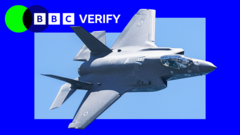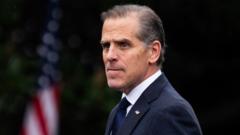Calls for transparency on arms sales to Israel gains momentum as the humanitarian crisis worsens.
**UK Government Faces Scrutiny Over Arms Exports to Israel Amid Gaza Conflict**

**UK Government Faces Scrutiny Over Arms Exports to Israel Amid Gaza Conflict**
Concerns arise over Britain's military assistance as the Gaza conflict intensifies.
The ongoing Gaza conflict has raised significant questions about the United Kingdom's military relationship with Israel. Foreign Secretary David Lammy has publicly condemned Israel's actions in Gaza, asserting that Britain could "do more in the coming weeks" should the Israeli government maintain its controversial military strategy in the densely populated territory. Lammy expressed dismay over the international community's inability to halt the violence, voicing particular outrage over the killing of Palestinians, including aid workers at humanitarian centers, by Israeli forces.
Since Israel's military response following the attacks on October 7th, the UK's military aid has come under increased scrutiny. Although the UK is not one of Israel's primary arms suppliers— with the United States leading the charge—there is still concern about the weapons exported by Britain, particularly in relation to components used in Israel's F-35 fighter jets. Notably, UK firms provide 13-15% of the components for these advanced aircraft, which have been deployed in the conflict.
In 2015, the UK issued arms export licenses to Israel amounting to over £500 million ($676.4 million), a peak seen in 2018. These licenses have raised alarm among activists and some parliamentarians who are now advocating for a public inquiry into the scope of military assistance to Israel. While Labour's recent government have suspended numerous arms export licenses—responding to potential breaches of international law—parts used in the F-35 remain encompassed in an exemption due to their international production framework. Experts suggest this loophole undermines the effectiveness of export controls.
In addition to arms exports, reports indicate that the UK has been involved in military intelligence activities in conjunction with Israel, particularly concerning operations aimed at locating hostages taken by Hamas. The Royal Air Force has conducted surveillance flights over Gaza, though Lammy clarified that these operations did not equate to sharing military intelligence with Israeli forces.
Training programs for IDF personnel also bring into question the extent of military cooperation, although the number of IDF personnel trained in Britain since 2020 remains minimal—a few each year under non-combat academic courses.
Most recently, the UK government has seen a shift in its diplomatic stance toward Israel, particularly following the general election results in 2024, leading to an evolution in its criticism and the sanctioning of certain Israeli officials. While the Labour government has been vocal in condemning the humanitarian crisis in Gaza, they have yet to impose direct sanctions against Israel for its military actions that have led to substantial civilian casualties, as reported by Gaza's health ministry.
As the situation in Gaza deteriorates, calls for greater transparency and accountability concerning the UK's arms exports and military engagement with Israel have intensified. The coming weeks may see heightened advocacy for policies that reflect a commitment to upholding international humanitarian standards amidst ongoing conflict.
Since Israel's military response following the attacks on October 7th, the UK's military aid has come under increased scrutiny. Although the UK is not one of Israel's primary arms suppliers— with the United States leading the charge—there is still concern about the weapons exported by Britain, particularly in relation to components used in Israel's F-35 fighter jets. Notably, UK firms provide 13-15% of the components for these advanced aircraft, which have been deployed in the conflict.
In 2015, the UK issued arms export licenses to Israel amounting to over £500 million ($676.4 million), a peak seen in 2018. These licenses have raised alarm among activists and some parliamentarians who are now advocating for a public inquiry into the scope of military assistance to Israel. While Labour's recent government have suspended numerous arms export licenses—responding to potential breaches of international law—parts used in the F-35 remain encompassed in an exemption due to their international production framework. Experts suggest this loophole undermines the effectiveness of export controls.
In addition to arms exports, reports indicate that the UK has been involved in military intelligence activities in conjunction with Israel, particularly concerning operations aimed at locating hostages taken by Hamas. The Royal Air Force has conducted surveillance flights over Gaza, though Lammy clarified that these operations did not equate to sharing military intelligence with Israeli forces.
Training programs for IDF personnel also bring into question the extent of military cooperation, although the number of IDF personnel trained in Britain since 2020 remains minimal—a few each year under non-combat academic courses.
Most recently, the UK government has seen a shift in its diplomatic stance toward Israel, particularly following the general election results in 2024, leading to an evolution in its criticism and the sanctioning of certain Israeli officials. While the Labour government has been vocal in condemning the humanitarian crisis in Gaza, they have yet to impose direct sanctions against Israel for its military actions that have led to substantial civilian casualties, as reported by Gaza's health ministry.
As the situation in Gaza deteriorates, calls for greater transparency and accountability concerning the UK's arms exports and military engagement with Israel have intensified. The coming weeks may see heightened advocacy for policies that reflect a commitment to upholding international humanitarian standards amidst ongoing conflict.




















